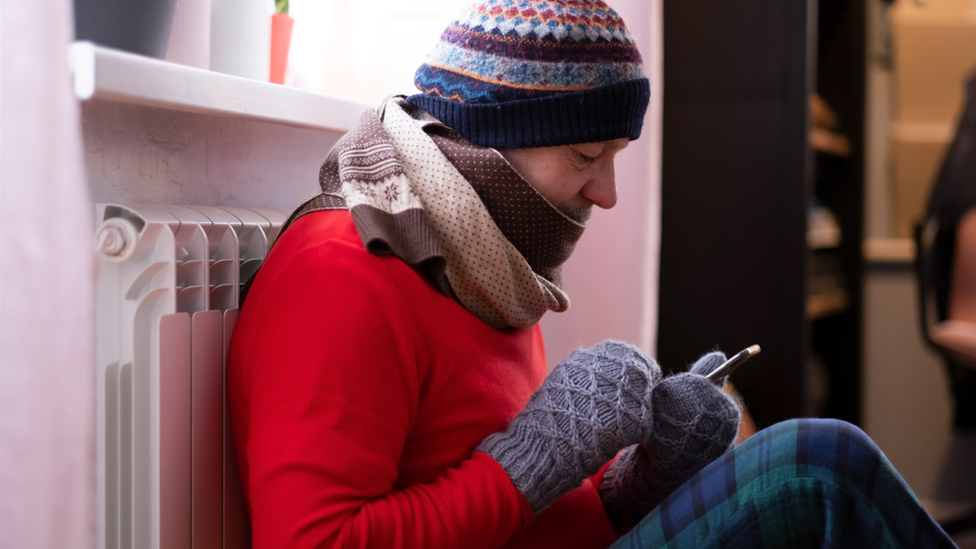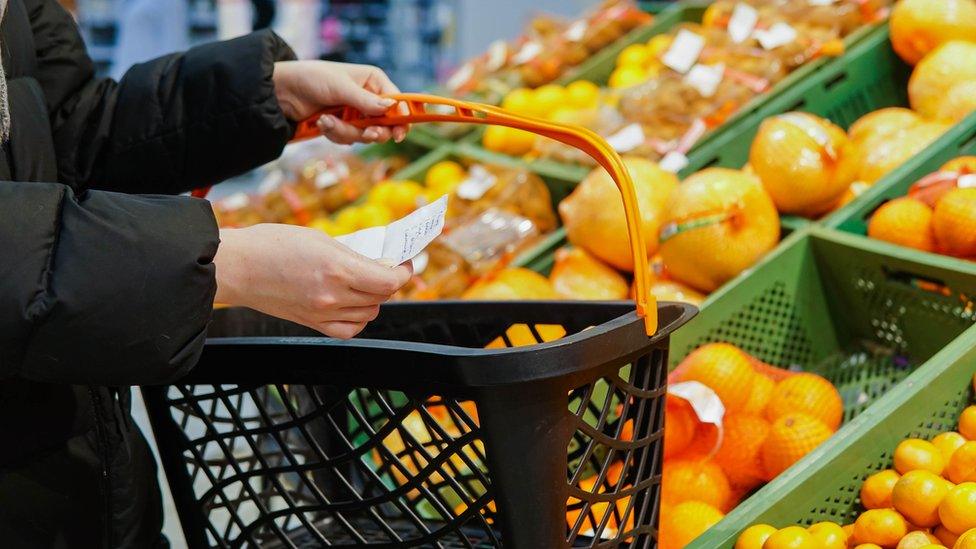Cost of living: Charity pauses new referrals to help fund
- Published

Bryson Charitable Group said it was temporarily pausing new referrals from Tuesday
A charity which launched a fund to help people with the cost of living has had to pause new referrals because of high demand.
Last month, Bryson Charitable Group said it aimed to support 15,000 households in the greatest need.
It has already distributed more than £1m to 5,000 households.
A spokesperson said it was a time of "unprecedented need" and it was briefing referral partners.
"To ensure that we are able to meet the needs of the remaining target 10,000 households over the harshest winter months, we have decided to temporarily pause new referrals once this phase closes for applications on Tuesday 21st November," the charity said.
"We are currently reassessing the roll out and timing of the next phase of the initiative."
The scheme was designed to help people with emergency top-ups of electricity, gas, oil and food "in direct response to the cost-of-living crisis".
The assistance on offered allowed households to claim one of the following: Electricity (£200), gas (£196), oil (£200 equivalent in litres), food/household essentials (£200), or household electrical white goods.
Assistance was arranged through suppliers rather than a cash offer, and households with an annual gross income of less than £26,500 could apply with some photo evidence of need required.
'Unique assistance'
"The overwhelming demand for this unique assistance and our services is acute and we are striving to manage our available funds as best we can to ensure it reaches those who need it most across Northern Ireland," the spokesperson continued.
The charity said it was typically processing 90% of applications within five working days.
Unlike previous schemes which had been part-funded with public money, this year's initiative has come from the charity's own reserves.
On Wednesday, the UK inflation rate fell to 4.6%, its lowest rate in two years, largely due to lower energy prices.
The interest rate is currently at a 15-year high, at 5.25%, which has pushed up the cost of borrowing, but has also led to higher savings rates.
Last winter, every household in Northern Ireland qualified for a £600 payment to take account of the rising cost of living, a scheme which has not been offered this time.
Related topics
- Published31 October 2023

- Published20 June 2023

